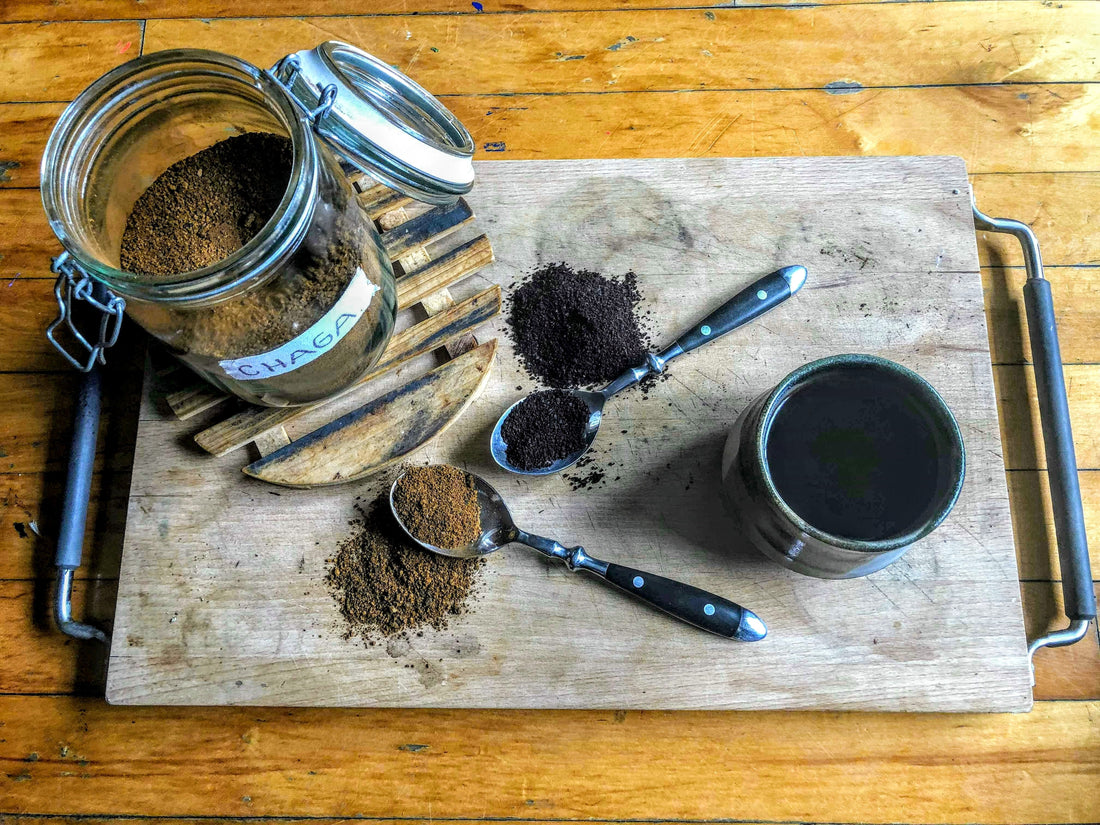
The King of Mushrooms: Why Chaga is Nature’s Secret Weapon for Your Health
Imagine a fungus so rich in nutrients that it’s been consumed for centuries, yet its appearance is more reminiscent of a chunk of charcoal than your garden-variety mushroom. The Chaga mushroom, Inonotus obliquus, may not look like much, but what lies beneath that rugged, charred exterior is nothing short of extraordinary.
Grown in the cold, harsh environments of northern Russia, Alaska, and other Arctic regions, Chaga has earned its place as the "King of the Mushrooms." Over the centuries, it’s been steeped into herbal teas by indigenous peoples, used as a trusted remedy for everything from inflammation to immunity. But let’s peel back the layers and look beyond tradition. What makes this fungus such a powerhouse, and how can modern science explain its vast benefits?
The Immune System’s Best Friend: Beta-Glucans
Chaga is loaded with beta-glucan polysaccharides—long, complex sugar molecules that do more than sweeten your morning tea. These compounds stimulate and balance the immune system, acting like conductors for your body’s natural defense mechanisms. Mechanistically, beta-glucans work by enhancing the activity of macrophages, the "big eaters" of the immune system. These cells hunt down pathogens, dead cells, and anything else that doesn't belong.
More than just a one-trick pony, beta-glucans don’t just rev up the immune response—they balance it. Think of it as fine-tuning a car engine, ensuring it purrs smoothly rather than roaring uncontrollably. This ability to modulate rather than overstimulate can be a game-changer, particularly in today’s world of rampant autoimmune conditions.
But the benefits don’t stop at the immune system. Studies suggest these same beta-glucans may help regulate blood sugar levels, reduce LDL cholesterol, and even protect against DNA damage. Think of Chaga as a sort of natural Swiss army knife, offering multi-faceted support across key areas of health.
Gut Health: The New Frontier
In recent years, gut health has become the darling of wellness discussions—and for good reason. A healthy gut is the cornerstone of everything from digestion to mood regulation. But while many are reaching for kombucha or probiotics, Chaga may be the unsung hero in this arena.
Chaga’s polysaccharides, along with those found in other medicinal mushrooms, are like high-octane fuel for your gut. They act as prebiotics, nourishing the good bacteria in your intestines and helping maintain microbial balance. In simpler terms, they help keep the peace in your digestive system, ensuring that good bacteria thrive while harmful invaders are kept in check.
The Antioxidant Powerhouse
If you’re concerned about free radicals—and you should be—Chaga has your back. Packed with polyphenols and phenolic compounds, this mushroom is a veritable antioxidant factory. Free radicals, those unstable atoms that can cause damage to cells, are public enemy number one when it comes to aging and disease. Chaga’s antioxidant properties neutralize these troublemakers, reducing inflammation and oxidative stress.
Mechanistically, Chaga’s polyphenols go one step further. They appear to regulate cytokines, proteins responsible for signaling inflammation in the body. This means Chaga not only fights the root cause of inflammation but also mitigates its aftermath. And with inflammation linked to everything from heart disease to arthritis, keeping it at bay is essential for long-term health.
Betulinic Acid: The Anti-Tumor Superstar?
One of Chaga’s most intriguing components is betulinic acid, a triterpenoid found in abundance within this fungus. Betulinic acid has garnered attention in anti-tumor and anti-inflammatory research, showing potential in inhibiting cancer cell growth. The mechanism here is equally fascinating: betulinic acid promotes apoptosis, the process of programmed cell death, which is crucial for preventing the spread of cancerous cells.
While the research is still emerging, the potential applications are profound. It’s no wonder Chaga has been crowned the “King of Mushrooms.”
Conclusion: A Nutrient-Dense Powerhouse
In the world of superfoods, Chaga stands tall—both literally and figuratively. It grows high on the bark of trees, exposed to the harshest elements, and in turn, it develops a complex arsenal of nutrients to survive. These same compounds can help humans thrive, supporting everything from the immune system to gut health, inflammation, and even cancer prevention.
As we continue to explore the depths of this charcoal-like fungus, one thing is clear: Chaga isn’t just a relic of folk medicine. It’s a modern-day powerhouse, fit for anyone looking to fortify their health and unlock nature’s secret potential.
Chaga is nature’s way of reminding us that sometimes, the best things come in the most unassuming packages.
These statements have not been evaluated by the Food and Drug Administration. This product is not intended to diagnose, treat, cure or prevent any disease. This article is for informational purposes only and is not a substitute for professional medical advice. Always consult your healthcare provider regarding any health concerns or before starting new supplements.
